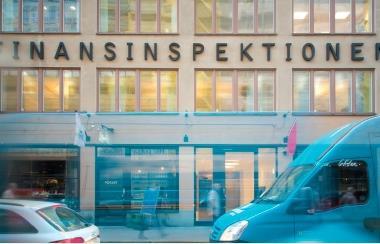Swedish pensions giant Alecta reported a 12.7% first-half investment loss for its key defined contribution (DC) product this morning, but ever-stronger solvency as rising interest rates shrank the current value of its liabilities.
The group’s chief executive officer blamed the development of the equity portfolio for the negative return in the first six months of this, and said it was “not unlikely” that the market slump would continue and hit real estate too.
The interim report showed the default portfolio of DC product Alecta Optimal Pension with a return between January and June 2022 of -12.7% – a loss that has wiped out a significant chunk of the 24.1% gain previously reported for the product over the whole of 2021.
Alecta’s defined benefit (DB) pension scheme, meanwhile, made a loss of 8.7% in the reporting period, compared with a gain in the 2021 full year of 15.2%.
Magnus Billing, CEO of the Stockholm-based pension fund, described the first six months of the year as “shaky”, noting several factors which had created uncertainty about where the world was headed – Russia’s war in Ukraine, sharply declining stock markets, rapidly rising inflation and interest rate hikes.
“The return for the first half of the year is clearly negative, which is due to the development of the equity portfolio,” he said.
“However, we entered 2022 with a very strong financial position and a portfolio that has been equipped for several years to better withstand the type of development that took place in 2022,” Billing said.
Alecta’s group solvency level increased to 211 at the end of June from 201 at the close of 2021, and 187 in June 2021. Collective consolidation of the DB scheme showed a similar trend, rising to 185 at the end of this year’s first half, from 172 at the end of last year.
Billing said the good development of the firm’s financial position – despite the large declines in the world’s stock exchanges – had been partly due to rising interest rates having reduced the present value of its future commitments.
“Another important reason is Alecta’s clear focus on cost efficiency,” he said.
Billing also said that over the past few years, Alecta had been working to create a portfolio of assets that would be better able to withstand both rising inflation and temporary stock market crashes.
“In 2021, Alecta significantly reduced the proportion of shares in the portfolio and increased alternative investments,” he said.
Looking ahead, the CEO commented: “The coming period for the financial markets is uncertain and difficult to assess, but it is not unlikely that the negative development during the first half of the year will continue for the rest of the year and also affect other asset classes, such as real estate.”
Total assets managed by Alecta slipped to SEK1.12trn (€114bn) by the end of June from SEK1.23trn at the end of December last year.
Read the digital edition of IPE’s latest magazine



















